As I’m sure you’re aware, the aviation industry has been laid low in recent times, with all of the world’s airlines drastically cutting capacity as a result of the viral pandemic.
In Canada alone, thousands of travellers will have had their planned flights cancelled by the airline as a result, and under the law, these customers are entitled to a full refund to the original form of payment.
And while our airlines had initially obliged, providing customers with the option for a full refund shortly after the first spate of mass cancellations, sometime last week they changed course as an entire industry, and now have the policy of only offering a credit for future travel that takes place within the next 24 months.
Moreover, on the website and over the phone, the airlines use a variety of underhanded tactics to discourage customers from pursuing refunds, avoid letting the customer know that they’re legally entitled to a refund, or even lead the customer to believe that they won’t be getting anything if they don’t accept the voucher for future travel.
In this article, let’s get you educated on your rights to a refund on a flight that’s been cancelled by the airline, as well as how, and whether, you should pursue the refund that you’re legally entitled to.
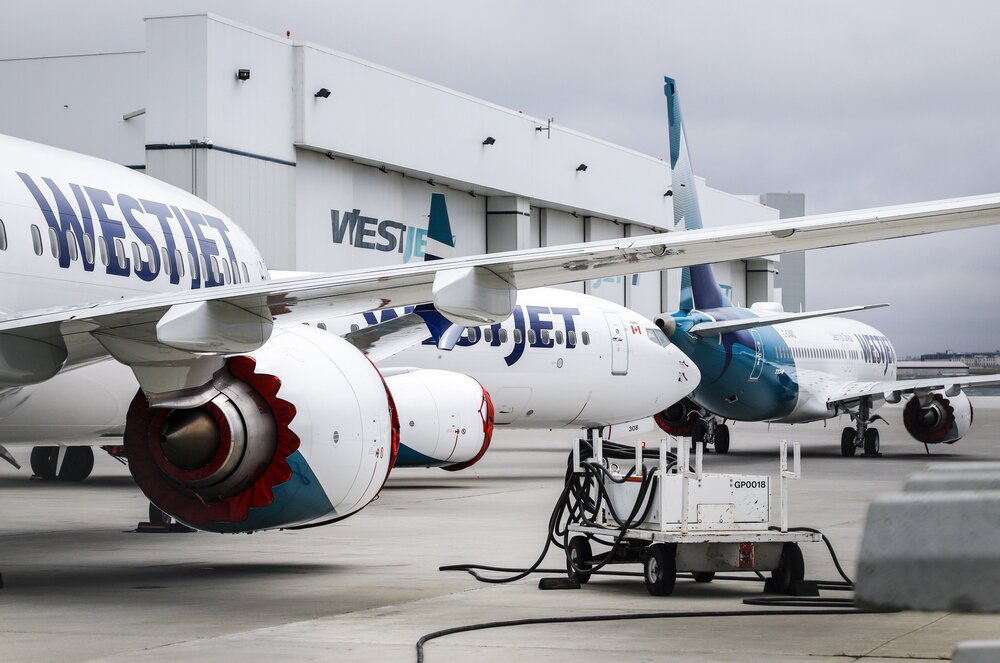
Canadian airlines have been cancelling most flights in March and April.
You Are Entitled to a Refund on a Cancelled Flight…
To be clear, we’re talking about instances when the airline has unilaterally cancelled your flight without putting you on an alternative flight – a fate that has befallen thousands of Canadian travellers over the past week, as all of our airlines drastically reduce their capacity or even suspend their operations.
If your flight was still operating, but you voluntarily chose not to travel, your grounds for a full refund are less clear-cut.
(We’re also going to be focusing on flights that you booked with cash, for now. I’ll touch upon the situation for flights booked on points later in the article.)
Assuming the airline was the one who cancelled your flight, you are well within your rights to insist on a refund to the original form of payment.
The precise legal grounds for this right varies based on a few factors, and our friend Dr. Gabor Lukacs of Air Passenger Rights has written about these legal grounds in detail.
My layperson’s understanding is as follows:
Under ordinary circumstances, your grounds for a refund when a flight is cancelled are rooted in various national and supranational regulations, such as Canada’s Air Passenger Protection Regulations (APPR) and the EU’s EC261.
When an unforeseen event, such as the COVID-19 pandemic, makes it impossible for one party to perform its role in a contract (as is the case now, where it’s impossible for airlines to fulfill the contract for travel services), the situation is known as a “frustration of contract” under common law. Sums paid on frustrated contracts are entitled to be recovered by the payer; in the case of a flight, that means you’re entitled to a full refund to your original form of payment.
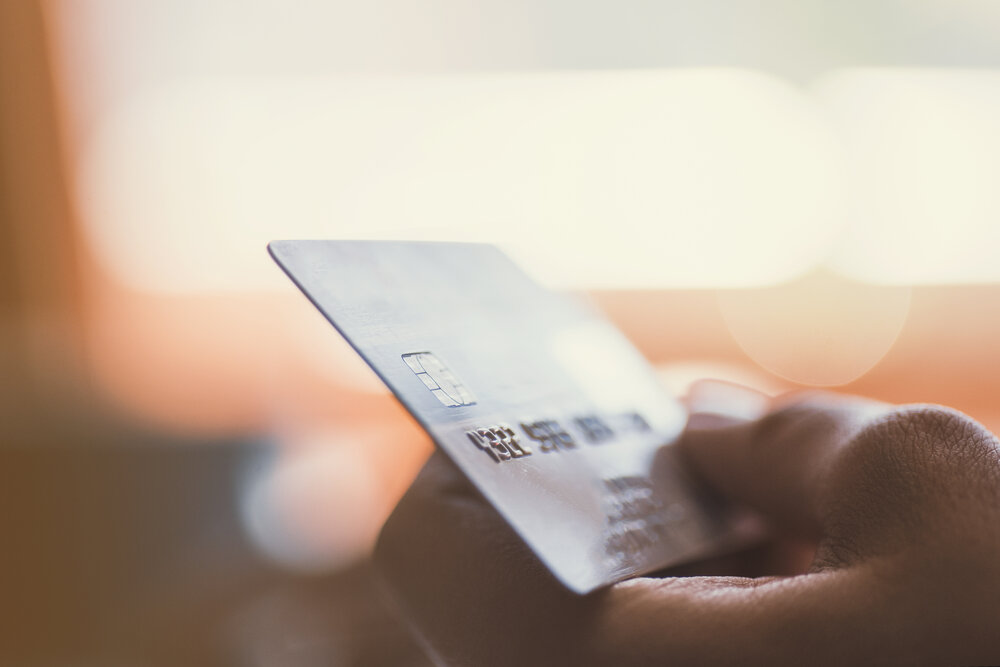
If your flight was cancelled, you are entitled to a full refund to the original form of payment.
…But the Airlines Are Playing Games
Those are your legal grounds for a full refund.
Airlines may try to retroactively revise their “policies”, their terms and conditions, or their domestic or international tariffs to remove any mention the customer’s entitlement to a full refund. But are those documents above the law? No.
Airlines may attempt to deceive customers about their rights to a refund, and lead them to believe that they’re lucky to be offered a credit for future travel in the first place. Does that absolve them of their responsibilities under the law? Nope.
Airlines may cite the loss of revenue, and its associated challenges, that the entire aviation industry is facing. No one is denying that they’re going through a hard time right now. But is it the responsibility of a customer who can no longer travel to provide the airline with an interest-free loan and help them through these tough times? Of course not.
Airlines may advise affected customers that they should’ve purchased travel insurance if they want a full refund. While insurance might indeed pay out in some scenarios, is the notion of travel insurance even remotely relevant to the discussion at hand, which relates to the airlines’ obligation to provide a refund under the law? Not at all.
And finally, what about the Canadian Transport Agency’s decision to issue a temporary exemption to the APPR due to the pandemic? Does that mean that airlines no longer have to provide a full refund?
No, the CTA’s ruling only affects compensation, which is the additional monies that customers would normally be due in the event of a cancelled flight, which no longer need to be paid out. The money that you originally paid for your flight, on the other hand, still needs to be refunded.
And yet, Air Canada, WestJet, Sunwing, Air Transat, all of their respective vacations providers, you name it – every airline is toeing the party line of offering affected customers only a credit for future travel and steadfastly refusing to issue refunds to credit cards.
They know full well that most customers will eventually relent and accept the credit, rather than taking more drastic steps to pursue the refund that they’re legally entitled to.
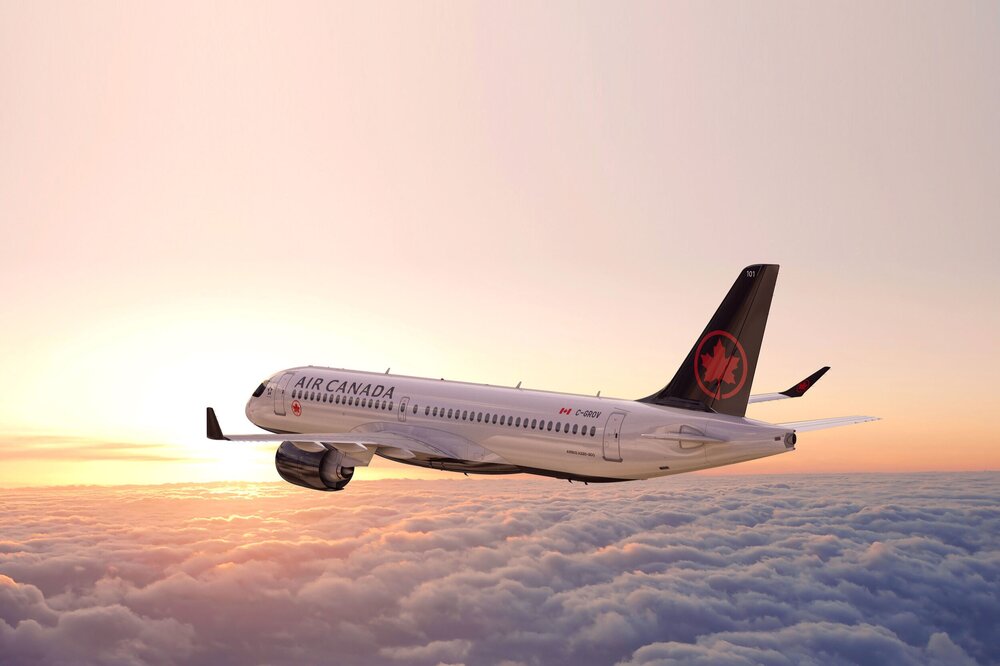
Airlines are proactively offering only a credit for future travel.
Can You File a Dispute on Your Credit Card?
There are plenty of reasons why you wouldn’t want to accept the travel credit.
You might not wish to spend the same amount of money with the airline over the next 24 months, especially if money is tight in the midst of an economic downturn. The prices for your trip might well increase in the future as well. And of course, there’s no guarantee that the airline will even exist beyond the next few months!
If the airline isn’t budging in terms of issuing a full refund, your last resort may be to file a dispute on your credit card, which is also known as requesting a chargeback.
What is a chargeback? Well, one of the benefits of using credit cards is that when the goods and services you’ve purchased are not completed as agreed, you can request a chargeback through your credit card company. Chargebacks are processed by the issuing bank (TD, RBC, BMO, Amex, etc.) under the rules of the credit card network (Visa, MasterCard, and, well, Amex).
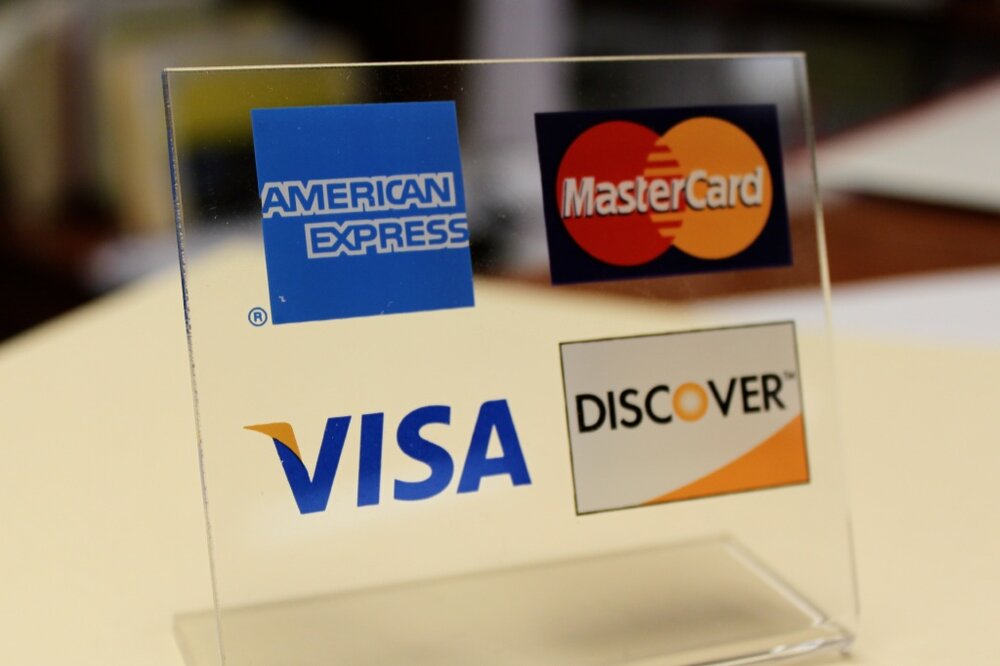
It may be time to file a chargeback on your credit card for the full refund.
Common reasons for filing a chargeback might include if you ordered an item that was never received, if you received defective merchandise, or if a return request under the company’s return policy was not honoured.
In the scenario at hand, you’ve paid for travel services (flights or vacations), but those services were never provided and the contract never fulfilled. Airlines are offering a gesture of a credit for future travel, but that is not equivalent to what you had paid for.
Generally, the process of filing a dispute with your credit card company is quite simple – you call the phone number on the back of your card and ask to open a dispute on a purchase.
Keep in mind that, prior to filing the dispute, you’ll need to have attempted to resolve the issue directly with the merchant, and have given them appropriate time to respond (which is generally understood as at least two weeks).
To help you with the chargeback process, Dr. Lukacs of Air Passenger Rights, who is far more knowledgeable on these matters than myself, has prepared an excellent step-by-step guide for maximizing your chances of success, which you can find here.
You’ll need to document the process of trying to resolve the issue directly with the merchant, which means recording your call with the airline as you seek a full refund, reject their offer of a credit for future travel, and advise them that you’ll proceed with a credit card chargeback unless you receive your full refund in two week’s time. When that period elapses, it’s time to continue with the chargeback.
But Should You File a Dispute on Your Credit Card?
On the other hand, just because you’re rightfully entitled to something doesn’t mean that you must exercise that right.
The simple reality here is that the COVID-19 pandemic is a “black swan” event that is bleeding the airlines dry through a prolonged loss of revenue like never before, and that the airlines are hanging onto your money as a matter of survival.
If every airline were to issue a full refund to every single affected customer across all their cancelled flights in March and April, then, well… there simply wouldn’t be any airlines left.
You might be thinking, “Well that isn’t my problem!” And you’d be completely right to think that, especially as the airlines are known for relentlessly nickel-and-diming their customers in normal times, and let’s be honest, are quite likely to receive federal assistance anyway.
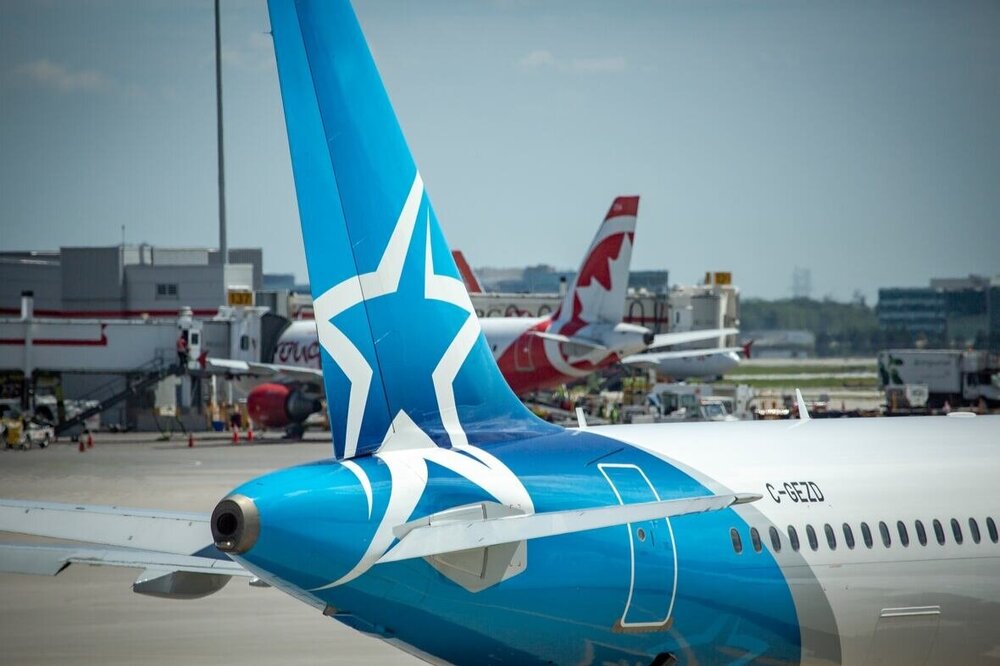
Canada’s airlines are seeking federal assistance in a financially challenging time.
However, this is also an unprecedented challenge for all of us, and a little bit of empathy for the particularly hard-hit travel industry – and the 1.8 million Canadians who work in the sector – could go a long way. After all, as eager travellers, we want our airlines, hotels, and tour operators to be in good shape once we emerge from the other side of this crisis at some point in the future.
And yet, of course, you’re still legally entitled to file a credit card dispute and pursue a full refund. Before going down that path, I’d just ask everyone to stop and consider whether you have any room to absorb the money you’ve paid, take that credit for a future travel, and contribute to a stronger travel industry post-pandemic.
Certainly, if you’ve been financially stricken by recent events as well and could really use the cash, then by all means go and seek your refund. But if accepting a $500 travel credit isn’t a big deal to you, and you feel confident of using up that credit in the next 24 months anyway, then hey, it might be something worth thinking about.
What About Flights Booked on Points?
The discussion so far has mainly focused on flights and vacation packages booked with cash, rather than through redeeming your points in a loyalty program. And when it comes to flights booked on points, there are two separate cases to consider.
Traditional frequent flyer programs like Aeroplan and Alaska Mileage Plan allow you to redeem points for a flight in an award bucket, and in recent times, these programs have generally been quite willing to redeposit your miles into your account and refund you any taxes and fees you paid, while waiving any cancellation penalties.
(A few bad apples, like British Airways Avios, have been encouraging customers to accept a credit for future travel on Avios bookings as well, but Head for Points has found a welcome workaround to this problem.)

It’s no surprise that award tickets have been quite easy to get refunded: you haven’t really paid the airline any money, so they aren’t really losing cashflow by letting you have your points back immediately.
However, it’s a slightly different situation if your flight was booked through a consolidator program like Air Miles, or directly via a bank’s in-house program like Amex Fixed Points Travel, RBC Avion, or CIBC Aventura.
These programs don’t book into award fare classes; instead, what they’re doing is they’re going out there and purchasing a cash fare from the airline on your behalf, while accepting your points as a method of payment.
The refund policies on these tickets would therefore be the same as if you had purchased a cash fare directly. That is to say that, under the law, you’re entitled to a full refund to the original method of payment (i.e., you get your points back, and the taxes and fees are refunded to your credit card); however, at the moment, you might only receive an offer for a credit for future travel in lieu of the refund.
If that’s the case, you’ll probably need to follow-up with your loyalty program (Air Miles, RBC Avion, etc.) to seek the refund you’re entitled to, and file a chargeback on your credit card for at least the outstanding taxes and fees if necessary.
Data points on the treatment of these types of bookings are few and far between, though, so if you had booked flights via these programs which were subsequently cancelled by the airline, do share your experience with us in the comments below.
Conclusion
This is a sad situation on all sides that isn’t really anyone’s fault (except for that pesky pandemic, of course).
Canada’s airlines are facing an unprecedented loss of revenue, and with cashflow rapidly drying up, they can only offer credits for future travel in lieu of full refunds for customers who’ve been affected by cancelled flights.
Meanwhile, thousands of Canadian travellers are being made to pay large sums of money for services that were not delivered, leaving them with no choice but to resort to credit card chargebacks to seek the return of funds that are rightfully theirs.
As always, if you’re in this tough spot, we in the community can help. And for all matters relating to passenger rights in Canada, there’s no better resource than the Air Passenger Rights (Canada) Facebook group run by Dr. Gabor Lukacs, who is something of a “people’s hero” among travellers nationwide.
We Canadians are honestly quite blessed to have his expertise and dedication, so feel free to post about your situation in the group and I’m sure it won’t be long until Dr. Lukacs and fellow group members show up with some step-by-step guidance.


